For the period starting from September 2017, the program of the seminar is available on our PhilInBioMed website.
Program September 2016-July 2017:
The seminar is held once a month at the University of Bordeaux (Carreire-Segalen campus, 146 rue Léo Saignat), usually on Tuesdays.
September 15, 2016, from 1:30pm to 2:30pm, Salle de conférence du Service de néphrologie (CHU Bordeaux)
Peter Godfrey-Smith (City University of New York, USA & HPS, University of Sydney, Australia)
Individuality and Minimal Cognition
Abstract:
The paper links discussions of two topics, biological individuality and the simplest forms of mentality. I discuss several attempts to locate the boundary between metabolic activity and ‘minimal cognition.’ I then look at differences between the kinds of individuality present in unicellular life, multicellular life in general, and animals of several kinds. Nervous systems, which are clearly relevant to cognition and subjectivity, also play an important role in the kind of individuality seen in animals. The last part of the paper links the biological transitions discussed earlier to the evolutionary history of subjective experience.

October 18, 2016, 12pm-1pm, salle de conférence de l’Espace Santé
Sara Green (University of Copenhagen, Denmark)
Systems Biology – The Future of Medicine?
Systems biology is expected to radically shape the future of medicine. In this talk I specifically address the implications of P4 medicine (defined as personalized, predictive, preventive and participatory) that draw on models from systems biology for large-scale integration of patient-specific data. Proponents of P4 medicine argue that computational integration and analysis of “big data” will revolutionize our health care systems, in particular primary care-based disease prevention. While many ambitions remain visionary, steps to personalize medicine are already taken via personalized genomics, mobile health technologies and pilot projects. An important aim of P4 medicine is to enable disease prevention among healthy persons through detection of risk factors. I present the results of collaborative analysis combining a view from general practice (MD Henrik Vogt) with a philosophy of science perspective. We examine the current status of P4 medicine in light of historical and current challenges to predictive and preventive medicine, including overdiagnosis and overtreatment. Moreover, we ask whether it is likely that in silico integration of patient-specific data will be able to better deal such challenges and to turn risk predictions into disease-preventive actions in a wider social context. Given the lack of evidence that P4 medicine can tip the balance between benefits and harms in preventive medicine, we raise concerns about the current promotion of P4 medicine as a solution to the current challenges in public health.

November 22, 2016, 12pm-1pm, nouvelle salle de vidéoconférence de la BU (Map)
François Duchesneau (Professor of Philosophy, University of Montreal, Canada)
The cell as an elementary organism: from Schwann to Brücke and Kölliker
This presentation is about the way cell physiology (Cellularphysiologie) was born. Indeed, Schwann invented the cell theory in 1839, but his views on the cell were rapidly challenged and transformed. On the one hand, the principle of formation of cells by a sort of crystallization was replaced by a principle of replication by division of existing organic structures (Omnis cellula e cellula) (Remak 1855; Virchow 1855, 1858). On the other hand, starting from the 1860s, the concept of the cell as an “elementary organism” (Elementarorganismus) was proposed and developed by physiologists like Brücke, Schultze and Kölliker. What did they exactly mean by this new notion? What was the theoretical framework connected with it? How did it translate into a methodology of functional analysis for the cell physiology, which originated therefrom?
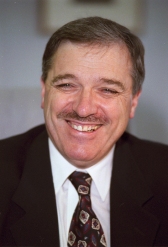
December 6, 2016, 12pm-1pm, nouvelle salle de vidéoconférence de la BU (Map)
Purificación Lopez-Garcia (Unité d’Ecologie, Systématique et Evolution, CNRS UMR 8079, Université Paris-Sud)
Molecular views on the microbial world challenge old misconceptions about biological evolution
Abstract:
Life and (biological) evolution are indissoluble. Evolution is the outcome of both, Darwinian processes implying reproduction with variation upon which natural selection acts, and drift. These processes are universal and underlie the biological diversity patterns that we see today. Understanding the mechanisms governing biological evolution leads to refuting some pervasive misconceptions on biological evolution. Among the most obstinate are the idea that complexity necessarily increases along evolution, that simple equals primitive or that bacteria and other unicellular organisms are less evolved than animals and plants. I will argue against these false assumptions, which are largely based on our biased perception of the microbial world. These biases can now be largely overcome thanks to the use of molecular approaches. I will also comment on the limits of actualism (interpreting the past considering the present).

January, 17 2017, 12pm-1pm, Salle 28, Bâtiment ED, premier étage/second floor
Etienne Coutureau (Decision and Adaptation Team, Aquitaine Institute for Cognitive and Integrative Neuroscience, UMR5287)
Learning to decide
Abstract
Decision making is an essential component of our life in a world of increasing social complexity, means for communication, and technological advances. Solving problems and adapting to new situations requires the integration of several basic cognitive processes which links the pursued goal with the possible values and consequences of our decisions. Therefore, to optimize decision making in a changing world, a subject must learn not only how to predict important events but also how to control their occurrence. These ideas of prediction and control are at the core of contemporary learning theories. This talk aims therefore at providing the most important aspects of these ideas with the perspective of understanding the brain and behavior relationships.

January, 31 2017, 2:30pm-3:30pm, Pellegrin Hospital, Rheumatology conference room (CHU, 12th floor)
Andrea Grignolio (Historian of medicine, Sapienza & Université de Tours)
The roots of the 1st international biopharmaceutical production in the Region Centre & the social resistance against vaccination: few suggestions from history
Abstract
The aim of my talk is twofold. On the one hand, it consists in showing the historical origins of one of the first French serial and international production of biopharmaceuticals (vaccine) established by a biomedical laboratory in Tours. Indeed, Edmond Chaumier (1853-1931) founded in 1887 the Institut Vaccinal of Tours to locally produce from heifer calves a vaccine against smallpox through an original technique known as “vaccin de conserve” (vaccine preserves or canned) consisting in glycerin vaccine stored in refrigerators, which turned out to be more effective, safe and storable —the latter being an important feature during outbreaks— than the “vaccin frais” (fresh vaccine) then available in France. Produced during 1910-1920’s, the Chaumier’s vaccine de conserve conquered the European markets spreading to France, United Kingdom, Italy, and elsewhere in Europe and outside.
On the other hand, the talk aims at offering a historical analysis of the social perception of risk applied to biomedical innovation. The controversy raised by vaccine against measles, mumps, and rubella (henceforth MMR) provides a useful case for studying individual behavioral responses to new information about risks or new medical technologies. This case study suggests that information processing, rather than access, education and income, is the key driver. Indeed, experimental evidences confirm that more educated (and seldom more affluent) parents were more selective and more often chose not to take vaccine for their child (typically MMR). The history (of medicine) of social resistance of vaccination could be very instructive concerning the reaction by different groups to emerging health risk information under uncertainty. The basic hypothesis of this second part of the research suggests to look at the recent literature of the risk perception in biomedical field (Gerd Gigerenzer, Dan Kahan, Daniel Kahneman)”
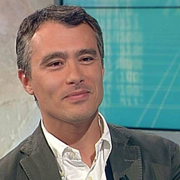
No talk in February and March 2017
April 14, 2017, 2:30pm, Salle de conférence de l’IBGC (Map)
William Bechtel (Department of Philosophy and Center for Circadian Biology, University of California, San Diego, USA)
Constructing and Analyzing Networks to Discover Mechanisms: Applications in Yeast and Cancer Biology
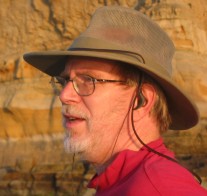
Abstract:
With the development in systems biology and systems medicine of high-throughput technologies, large databases to collect the resulting data, and platforms such as Cytoscape to represent and analyze data in networks, one might think that the project of mechanistic explanation in biology has been supplanted. However, the very researchers developing and using these new tools still advance accounts of mechanisms. I contend that what the new tools provide are novel strategies for discovering mechanisms. They also provide new insights into what mechanisms are and how they function in the context of living organisms. Rather than starting by identifying a given phenomenon with an already differentiated mechanism or a few of its parts, the research I discuss starts with data about a multitude of interactions of genes and proteins in cells. Researchers represent genes and proteins in networks to which they apply a variety of analytic tools to reveal modules. In many cases these modules correspond approximately to mechanisms as traditionally investigated and the research results in identifying new components in these mechanisms. In other cases, modules are taken to represent previously undiscovered mechanisms. In either case, the investigations reveal a multitude of ways mechanisms are interconnected with other cell mechanism and often that they are far more transitory and malleable than traditionally conceived. I employ examples from yeast and cancer biology to illustrate both the strategies being employed to discover mechanisms and how the resulting mechanisms figure in explanations in both basic science and cancer research.
For audio file of the talk, please contact Thomas Pradeu.
May 2, 2017, 2:30pm, CHU Bordeaux Hospital, Rheumatology conference room (12th floor)
Marco Nathan (University of Denver, USA)
Philosophical Reflections on Diagnosis and Prognosis

Abstract
The goal of this talk is to discuss a prominent—albeit neglected—class of scientific inferences, ‘counterfactual explanations,’ which take into account not only what is the case, but also what could (or could not) have happened to an individual patient or control group. In particular, I will focus on the how this kind of counter-to-the-facts reasoning functions in the context of molecular medicine—the cutting edge (but rapidly developing) attempt to study biological conditions and treat diseases from a molecular perspective. I begin by suggesting that counterfactual thinking play a key role in the diagnosis and prognosis of genetic diseases and other serious pathological conditions. In the second part of the talk, I argue that traditional semantic analyses of counterfactual explanation are guilty of conflating two scientific goals—truth and explanation—that should be kept distinct. I sketch and defend an alternative ‘placeholder’ analysis, according to which counterfactual statements stand in for predictions and explanations, in practice or in principle.
For audio file of the talk, please contact Thomas Pradeu.
May 31, 2017, 2:30pm, CHU Bordeaux Hospital, Rheumatology conference room (12th floor)
Leonardo Bich (ERC IDEM, ImmunoConcEpT, CNRS & University of Bordeaux)
Minimal cognition and its foundations in regulatory mechanisms in basic living systems
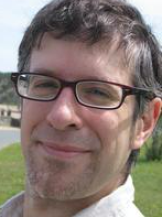
Abstract
This talk addresses the question of minimal cognition by investigating the origin of some crucial cognitive properties in the very basic organisation of biological systems. Unlike other approaches to the origin of cognition, which are centred on movement (in unicellular systems) or on the role of the nervous system (in metazoans), I focus on specific molecular adaptive mechanisms that justify the attribution of cognitive capabilities already to prokaryotic organisms. More specifically, I propose a theoretical model of how a system can distinguish between specific features of its interaction with the environment, which is a fundamental requirement for the emergence of minimal forms of cognition, and I analyse its implications by comparing different possible mechanisms underlying chemotactic behaviours in synthetic-abiotic and unicellular living systems. I argue that the appearance of the capacity to functionally distinguish between different features of the environment is grounded in the molecular domain, and originates from basic mechanisms of biological regulation. In conclusion, I show how this framework can provide new and more accurate tools to discuss the Life=Cognition thesis.
June 13, 2017, 2:30pm, CHU Bordeaux Hospital, Rheumatology conference room (12th floor)
Marc Daëron (Institut Pasteur, CIML & IHPST)
Biological functions challenged by omics

Abstract
Omics are technology-based large-scale analyses of structurally and/or functionally related populations of molecules designated by the suffix “ome” which have been increasingly used in life sciences. As a result, biological thinking has been radically changed with new biological practice. Noticeably, however, biological functions remain a cornerstone of omics approaches. Do omics appeal to the same functions that have always been used to understand the living? How are these functions compatible with the philosophical theories elaborated in the 1970s? Will the future development of omics redefine the concept of biological function?
When examined with the tools and concepts of molecular and systems biology that underlie omic approaches, biological functions appear as being relational, reciprocal, relative, contextual and probabilistic. Rather than a biological function, biological objects may therefore have a wide potential dispositional repertoire within which the context can select a variety of actual functional repertoires, depending on the conditions. Using antibodies as a case study, I will argue that rather than for a specific effect, a trait might have been selected for its ability to anticipate and respond to the unknown.
Such an account challenges the notion of function, as used by biologists and conceptualized by philosophers. The reason might stem from the orthogonal orientations of classical and omics’ biology. In classical biology, functional analysis is based on the multi-layer vertical integration of causally-linked molecular processes, whereas in omics it is based on the single-layer horizontal comparison of non-causally linked molecular clusters. Whether trans-omics, a recently developed multi-layer integration of data from several omics will reconcile old and new functions or generate radically different functions is a hard to answer but exciting question.
July 13, 2017, 2:30pm, Pellegrin Hospital, Salle de conférence du Service d’Imagerie du CHU
James Woodward (Distinguished Professor in the Department of History and Philosophy of Science at the University of Pittsburgh)
Causation in Biology

Abstract
This talk will discuss some recent work on causation in biology from a broadly interventionist perspective. The basic idea of an interventionist account of causation is that causal relationships are relationships that are potentially exploitable for manipulation and control. I will use this general framework to discuss some issues having to do the modeling of causal relationships across different levels or scales, notions of causal specificity, and the role of a consideration that I call conditional independence which is closely related to the notion of causal proportionality discussed in the philosophical literature. A guiding theme throughout the talk will the importance of finding the right “level” or the right variables for framing causal hypotheses
September 29, 2017
Tim Lewens (Professor of Philosophy, University of Cambridge).
Title and abstract TBA.

Program September 2015-July 2016:

We are used to thinking of cancer as a breakdown in function. Cancer is often defined, in fact, as a “failure” to control cell birth and death, and a disease of “disorganized” growth, due largely to mutations that affect the regulation of the cell cycle, the control of normal cell division, replication, etc.. Yet, we also know that selection can (and sometimes does) operate on more than one level of organization. This can occur both sequentially, and simultaneously.
Some traits are, as a consequence, byproducts of selection at other levels of organization. In this talk, I argue that cancer progression depends, in part, on a cooption of organismic adaptations: cell signaling pathways that play roles in wound healing, & embryogenesis (Schedin, et. al., 2006; Weinberg, 2014). In this sense, cancer progression is a byproduct of natural selection at the organismal level. However, cancer may also be described as a process of natural selection, where selection is acting at the level of individual cells, and potentially also, cell lineages or whole populations (see, e.g., Greaves, et. al., 2010; Crespi and Summers, 2005). Moreover, cancer may be described as a process of niche construction: for, stromal and carcinoma cells cooperate in service of angiogensis, invasion, and metastasis (see, e.g., Egeblad, 2010, Merlo, et. al., 2006). These capacities may be described as traits or characters of the tumor (collective) as a whole, which together contribute to the tumor’s survival. Adopting Queller and Strassman’s (2009) sense of “organismality,” where collectives are more or less “cooperative” and approach the paradigmatic “organism” as a matter of degree, then, one could thus speak of advanced tumors as proto-organisms. This talk will explore the consequences of thinking about cancer’s dynamics from a multi-level evolutionary perspective. The aim is to explore the scope and limitations of this analogy, in the spirit of Campbell (1920), Achinstein (1964), Spector, (1965), and Hesse’s (1966) arguments for the fruitful use of analogy and metaphor in science.

- Link to the video: Video Self and nonself
- Link to abstracts, slides, references: Details Self and nonself

- Link to Video of this talk: Video Blanchard
- Link to abstract and references: Details What is life?

– March 22nd, 2016: Maureen O’Malley (University of Bordeaux; previously: University of Sydney), Why Philosophy of Microbiology?
Attention! Exceptionnellement, la séance commencera à 12h au lieu de 12h30 (The seminar will start at noon, instead of 12:30pm)
- Link to Video of this talk: Video O’Malley
- Link to PDF Presentation of Maureen’s talk: Why Philosophy of Microbiology?
- Short abstract: Microbes have only recently become the objects of sustained philosophical attention. I will discuss some of the reasons why philosophers now find microbes and microbiology interesting, and why philosophy of microbiology might be a worthwhile activity.
- Link to PDF presentation: Chiu, Host-Microbiota Symbiosis
- Video of the talk: Video Chiu
- Abstract: I will distinguish between three types of interactionist reactions to internalist or externalist theories. These theories assign specific theoretical roles to internal and external factors, respectively. A “balanced” interactionist balances the relative weight of internal and external factors without changing their respective roles. An “extension” interactionist reassigns the roles to both factors. A “transformative” interactionist rejects the original theoretical framework, re-organizing internal and external factors under a new alternative. Examples will be drawn from major debates in evolutionary biology, developmental biology, and cognitive science. I then suggest that there could be three alternative interpretations to the “host-microbiota” holobiont/superorganism/metaorganism.


- Slides of the talk: Slides Horvath.
- Abstract:
Discovered in 2007, CRISPR-Cas is a bacterial immunity system directed against nucleic acids, notably viral DNA. In this system, the immunological memory is built through the acquisition of short viral DNA sequences into the chromosome of the bacterial host, within peculiar regions called CRISPR (Clustered Regularly Interspaced Short Palindromic Repeats). In the interference stage, these sequences are transcribed into small RNA molecules named crRNAs, that are used by Cas (CRISPR-associated) proteins to recognize and inactivate any foreign DNA showing sequence complementary to the crRNAs. The ability of certain Cas proteins, notably Cas9, to be directed by a short RNA towards a DNA target and to cleave it at a precise position has been diverted and transformed in 2012 into a simple and efficient tool for genome editing. Since then, the Cas9 tool has been applied successfully to genome modification of numerous organisms, including microorganisms, plants, animals, and humans. This presentation will focus on the milestone and fundamental discoveries about CRISPR-Cas systems, and on some of their applications. - Links to know in more detail Philippe Horvath’s role in the discovery of the CRISPR-Cas system:
http://www.ncbi.nlm.nih.gov/pubmed/17379808
http://www.ncbi.nlm.nih.gov/pubmed/20056882
- Location: Campus Carreire, Amphi. 12
- Big crowd for Philippe Horvath’s talk:


- Video of the talk: Video Weber
- Abstract:
Philosophers of biology have recently been debating to what extent such nucleic acids that are said to carry genetic information (i.e., DNA or mRNA) really play a special role in development. A recent attempt to defend such a special role consists in arguing that nucleic acid is what makes an actual difference (as opposed to potential differences) to the amino acid sequence of proteins. However, this is not sufficient as there are often other actual-difference makers involved in protein synthesis, for example, splicing or post-translational modification mechanisms. For this reasons, it has been suggested that what distinguishes nucleic acid is their causal specificity. Causal specificity has to do with the amount of control that interventions on the cause variable can exert on the effect variable. However, a quantitative measure of causal specificity can be used to show that in many cases the specificity of non-genetic causes is a full match to the genetic causes. In this talk, I will argue that what matters biologically is the causal specificity that inheres in possible interventions that are biologically normal, where biological normality is defined both in terms of what can happen in a population of organisms at a non-negligible probability and what is consistent with normal biological functioning of the rest of the organism. This kind of causal specificity is higher for genetic causes than for the (known) non-genetic causes.
- Location: salle TP – Visio 2. Plan d’accès à cette salle : Plan-acces-visio-CARREIRE
Stem cell models: cell identity, development, and levels of organization
- Slides of the talk: Slides Fagan
- Abstract:
The concept of a stem cell is a peculiar one, uniting two very different
ideas. A cell is a well-characterized biological entity, observable via
relatively simple technology and clearly distinguished from its
environment and other cells by a bounding membrane. A stem is the
beginning of a process, the point of origin for something that is to be.
A stem cell, then, is both entity and process; a cell defined by what it
gives rise to rather than its observable traits. In this talk, I present
a minimal abstract model of the stem cell concept, and explore its
implications for key questions in philosophy of biology. The model
explicates the general definition of ³stem cell² as a cell that has both
the capacity to self-renew and the capacity to differentiate. After
presenting the model, I discuss three of its implications. (1) Stem cells
can be individuated only relative to particular experimental methods and
hypotheses, such that the concept in practice is diverse and
context-dependent. (2) Stem cell concepts involve substantive assumptions
about biological development, at organismal, cellular, and molecular
levels. The modeling approach offers a systematic framework for
representing and comparing these concepts, via the topology of lineage
trees. (3) The aforementioned assumptions about development have
implications for theories of cancer, in particular the idea of ³cancer
stem cells.² - Location: 1pm, salle de conférences de l’IBGC (directions)

Kith selection: simple theory, complicated amoebas and bacteria
Commentator: Johannes Martens (IHPST, CNRS & Paris 1 Panthéon Sorbonne)
Abstract:
The evolution of cooperation is well understood when the cooperators are relatives but perhaps less so when they are unrelated. We will explore two aspects of evolutionary interactions among non-relatives, which we call kith selection. On the theoretical side, we show how these interactions can be expressed in form exactly parallel Hamilton’s rule. On the empirical side, we describe a complex “farming” symbiosis between Burkholderia bacteria and Dictyostelid amoebas.
Location: Salle des conférences du Bâtiment Espace Santé (Map_Espace santé)


– June 6th 10am-12pm: Denis Walsh (University of Toronto, Canada)
Bibliothèque du service de Rhumatologie, 12e étage du Tripode, groupe hospitalier Pellegrin.
Rencontre avec l’auteur à propos de son livre : Organisms, Agency, and Evolution (2016)
La séminaire se tiendra en anglais.
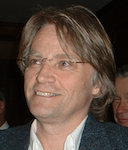
What does a ‘global history’ of biology bring to us?
- Video of the talk: Video Morange
- Abstract:
To write a global history of life sciences from Antiquity to extant research, from molecular biology to ecology and ethology is an impossible task, the promise to be inaccurate and wrong in many issues.
Nevertheless, the result is not without interest. It casts a new light on continuities and discontinuities in biological thought, and on the relations between biology and other scientific disciplines. It reveals the circulation of concepts and methods between biological subdisciplines, and between Society and biology. It shows the complex dynamics of biological transformations that gives biology its specific nature.
- Location: salle TP – Visio 2. Plan d’accès à cette salle : Plan-acces-visio-CARREIRE

Philosophical lessons learned from Galton’s statistical innovations about the nature of scientific explanation.
Salle de réunion FR TransBioMed (Université Bordeaux Segalen, Bât 1A, 2ème étage – Zone Nord – Case 53, 146, rue Léo Saignat, 33076 Bordeaux cedex France)

Mardi 13 Janvier, 12h30 à 14h (Site de Carreire, Amphi 6) :
Andreas Bikfalvi – ‘Variations, évolutions et métamorphoses de l’arbre vasculaire’ (discutant: Thomas Pradeu)
Mardi 10 Février, 12h30 à 14h (Site de Carreire, Amphi 6) :
Cédric Brun – ‘L’explication en neurosciences, mécanisme et réductionnisme?’ (discutant: Thomas Boraud)
Vendredi 20 Mars, de 14h à 15h30 (Salle de conférences du Centre de génomique fonctionnelle) :
Philippe Kourilsky – ‘Le jeu du hasard et de la complexité’
(discutant: Thomas Pradeu)
Lundi 20 Avril, de 12h30 à 14h (Site de Carreire, Amphi 6) :
Maël Lemoine – Comment définir la maladie?
(discutant à préciser)
Lundi 18 Mai, de 12h20 à 14h (Site de Carreire, Amphi 6) :
Nora Abrous (Titre à préciser)
(discutant: A.M. Ferner)
Lundi 8 juin, de 12h à 14h (Site de Carreire, Amphi 7) :
Thomas Boraud, Les neurosciences peuvent-elle étudier les processus de prise de décision sans tomber dans la néo-phrénologie?
(discutant: Cédric Brun)
Mardi 23 juin de 12h30 à 14h, (Salle de conférences du Centre de génomique fonctionnelle (site Carreire)) :
Jan Pieter Konsman, Titre à préciser
(discutant à préciser)
Jeudi 16 Juillet, de 12h30 à 14h (Site de Carreire, Amphi 6) :
Adam Ferner – Organic individuals



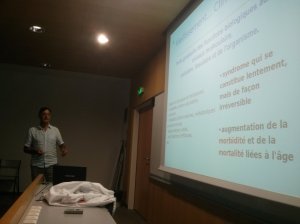
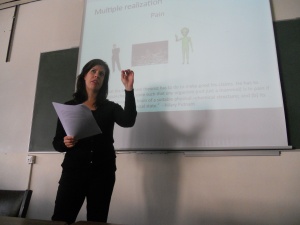


Leave a comment